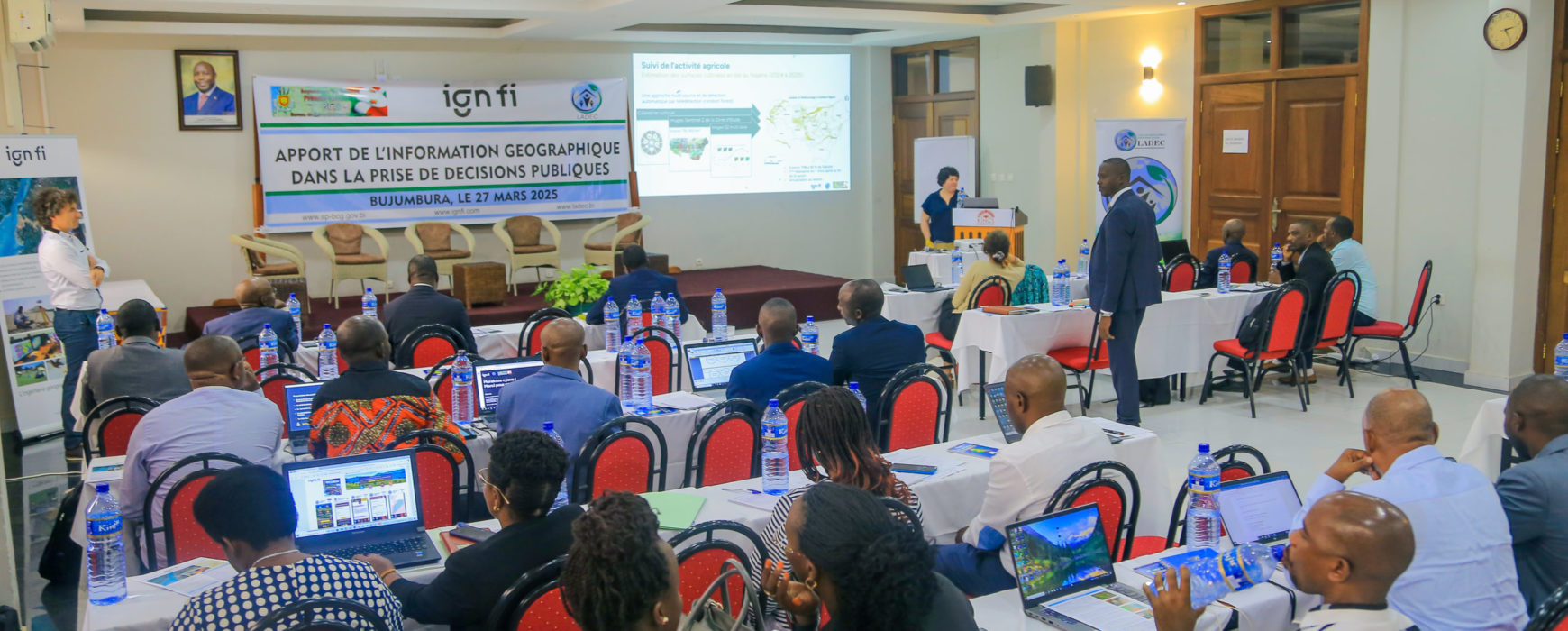On Thursday 27 March 2025, a seminar dedicated to the contribution of geographic information in public decision-making was held at the King’s Conference Center in Bujumbura. This event was organised with the support of the Geomatics Centralisation Office (BCG), under the supervision of the Burundian Prime Minister’s Office, IGN FI and LADEC, its partner in Burundi.
Mobilisation of strategic players
The seminar brought together a wide range of participants from key institutions in the country. Among them were a representative of the Strategic Development Studies Office (under the supervision of the Presidency), ministry executives (environment, agriculture, territorial administration, civil protection, defence, health, infrastructure, education, etc.), experts from the BCG and the Burundi Geographical Institute (IGEBU), as well as representatives of public development agencies (OBUHA, FONIC, SETIC). Universities and technical and financial partners, such as the World Bank, the Swiss Cooperation (DDC), the International Office for Migration (IOM), the FAO, the UNDP and the French Development Agency (AFD), also took part in the discussions.
Inspiring international experiences
During the presentations, several projects led by IGN FI were presented, particularly in Uganda, Guinea, Madagascar and Burundi, illustrating the modernisation of the land tenure chain and the implementation of national mapping. Emphasis was also placed on the Geoportal, a tool facilitating access to geographical reference data, and on the modernisation of the national geodetic network.
Risk management was the subject of in-depth discussions, with a focus on the Integrated Flood Management Project in Senegal (PGIIS), which aroused keen interest among the participants. The application of these experiences could make a significant contribution to flood prevention in Burundi and to better management of the country’s natural and land resources.
A need for structuring and access to data
Local stakeholders presented the current situation regarding the collection and use of geographic data. The director of IGEBU pointed out that many geodetic markers date from the colonial era and that their preservation is now the responsibility of municipal administrators, following awareness campaigns.
Towards better governance through geographic information
The discussions converged on the need to strengthen the capacities of local actors, to build synergies and to update the base of reference data (national imagery, topographical and administrative maps, geodetic network) by setting up a portal-type platform to facilitate access to and sharing of geographic information. This approach would optimise the use of geospatial data in all sectors of the country, facilitating informed and strategic decision-making.
Watch an extract of the TV news:

